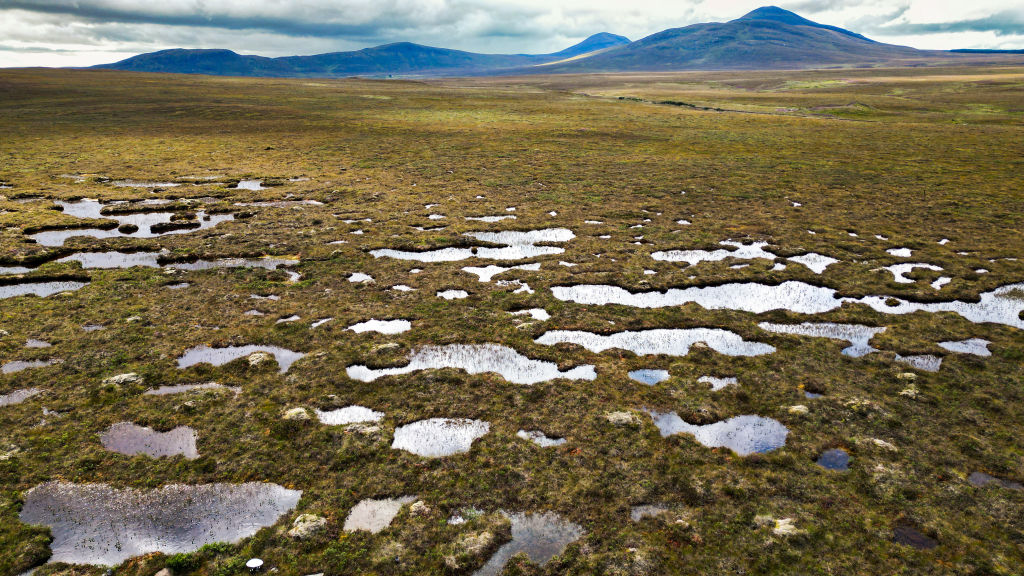
Each year, the TIME100 Most Influential Companies list recognizes businesses making extraordinary impact around the world. Enter your company here today.
“Even if we transition to 100% clean energy, temperatures will continue to rise unless we also address our unsustainable relationship with nature,” wrote climate scientist Johan Rockstrom recently, echoing a call that reverberated across this year’s New York Climate Week.
While climate action is often framed as a sacrifice of at least $2 trillion annually (mainly for clean energy), the cost of inaction on protecting and restoring nature is much higher. Consultancy PwC estimates that over half (55%) of the world’s gross domestic product (GDP)—equivalent to an estimated $58 trillion—is exposed to material nature risks due to moderate or high dependence on nature. While sectors like agriculture, forestry, and fisheries are most exposed, PwC found every single economic sector to have nature-related risks. Nature stewardship is critical to business outcomes, for everything from drug discovery to growing materials for food, fibers, and fuel—and every sector also stands to benefit from investing in protecting and better managing waters, land, air, and wildlife, collectively known as nature-based climate solutions.
The world’s top climate experts at the IPCC agree that we urgently need more investment to both reduce and remove greenhouse gas emissions, by protecting existing, intact stores of carbon (such as in forests, grasslands, mangroves, and peatlands), reducing nitrous oxide and methane emissions from farming, and quickly and cheaply removing carbon dioxide from the atmosphere through ecosystem restoration.
To both meet our climate goals and reduce nature risks, the United Nations Environment Program (UNEP) estimates that we need to mobilize at least $230 billion in additional funding per year for nature protection and restoration—and much of that will need to come from the private sector. Currently, only 17% of the $154 billion in existing funding for nature comes from private capital; the rest is from governments.
Despite scientific proof of the critical role that nature plays as part of the climate solution, nature-based climate initiatives lost substantial corporate support over the past year. High-profile brands such as Delta and Apple have been subject to media scrutiny and even lawsuits surrounding their nature investments and claims. Vocal champions of climate action are split in their opinions of the importance of nature-based solutions. Some believe that new technologies alone—like carbon capture, modular nuclear, and fusion—hold the key to the future. This group sees nature as a weak climate solution, evaluating nature investments solely on their greenhouse gas reduction impact.
In contrast, many others see nature-based solutions as a vital component of climate action. And more importantly, they see many reasons to invest in nature beyond carbon: increased biodiversity, including improved water access, higher crop yields from better soil fertility and pollinator survival, access to not-yet-discovered raw materials to improve health and treat illness, lower temperatures, and greater resilience to extreme weather. In this spirit, many companies are continuing investments in nature-based solutions, but recently often in silence. This trend has been termed “greenhushing,” whereby corporations deliberately choose to under-report or hide their sustainability work to evade public scrutiny, is increasingly common, and makes it more difficult to know the true scale of corporate investments going into nature.
Last week at Climate Week NYC, held September in parallel with the United Nations General Assembly, TIME’s climate action division, TIME CO2, convened a roundtable to understand what was motivating companies to continue investing in nature, and what barriers keep them from increasing their investments. The roundtable included senior sustainability executives from companies such as Amazon, Amex, Airbnb, GSK, HP, Ingka Group (IKEA), L’Oreal, Mastercard, Rabobank, Salesforce, Unilever, and VMware, and NGOs including Conservation International and The Nature Conservancy. It was sponsored by the American Forest Foundation, Climate Impact Partners, Pachama, Space Intelligence, and Sylvera.
At the roundtable, we learned that companies found that their investments in ecosystem conservation and restoration in operating areas have not just reduced supply-chain emissions but also generated tangible business value. Improving water security, potential for financial returns, and overall business resilience were cited as particularly important reasons for nature investments. These investments are often additional to other corporate initiatives focused on emissions reductions, such as carbon pricing, supplier emissions requirements, renewable energy procurement, and logistics fleet electrification. In the absence of universal climate regulation, these voluntary actions are necessary.
Unanimously, these business executives pointed to the fact that corporate investments in nature-based solutions face highly critical and persistent media coverage, focusing on what has not worked, often dismissing or failing to cover the benefits. They discussed their interest in increasing transparency around corporate investments in nature-based solutions, sharing what is and is not working to increase learning from failures, as well as increase investment in areas that deserve more focus.

A recurring theme was that the expectation of perfection was the enemy of actual progress, and that if we want to inspire more businesses to act on climate, we need to demand they have clear goals, a plan to achieve it, and clear, regular communication of proof of progress. To demand perfection is to scare away many from even taking their first steps on their climate journey.
It’s clear that leading businesses aren’t retreating from investing in nature. In fact, they’re doubling down. Companies need to speak up—and be encouraged to do so—if we are going to see these practices become mainstream and scale. Not because of pressure from the climate and conservation community, but because it’s good business.
More Must-Reads from TIME
- Inside Elon Musk’s War on Washington
- Meet the 2025 Women of the Year
- The Harsh Truth About Disability Inclusion
- Why Do More Young Adults Have Cancer?
- Colman Domingo Leads With Radical Love
- How to Get Better at Doing Things Alone
- Cecily Strong on Goober the Clown
- Column: The Rise of America’s Broligarchy
Contact us at letters@time.com